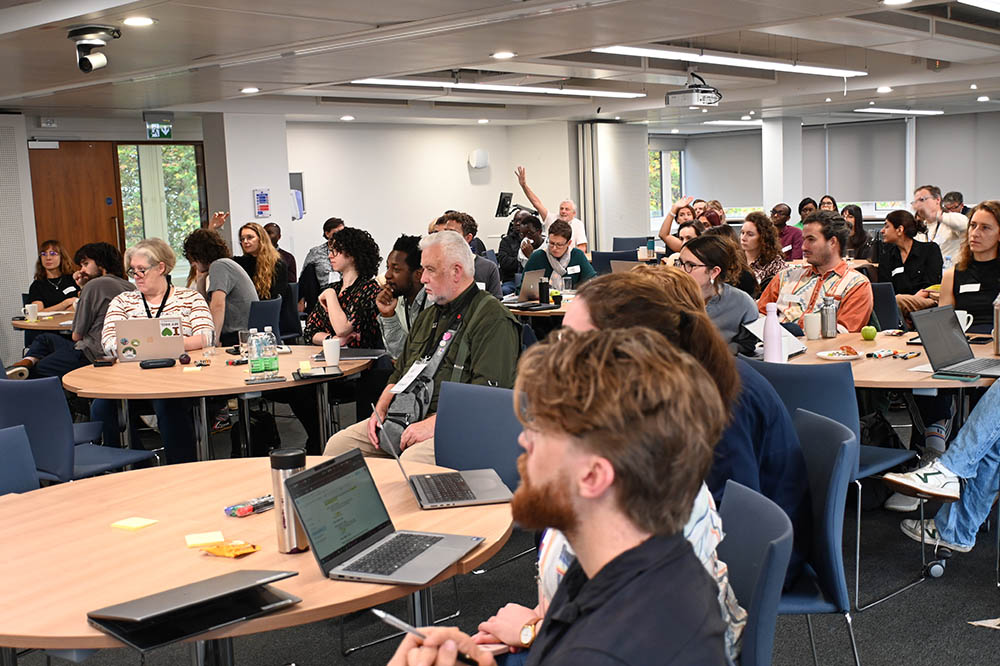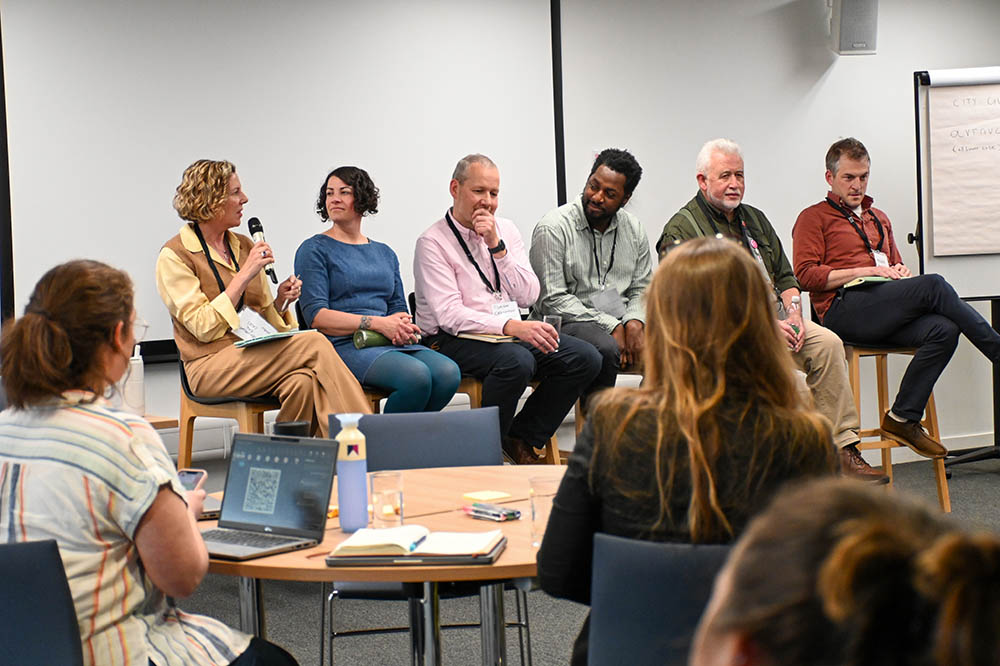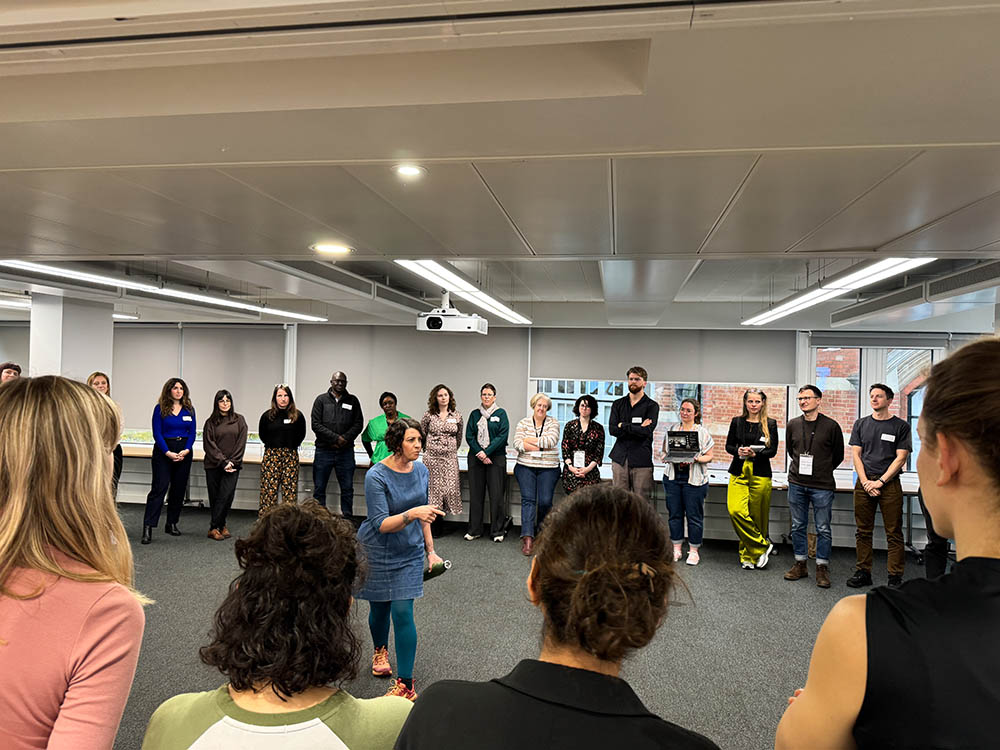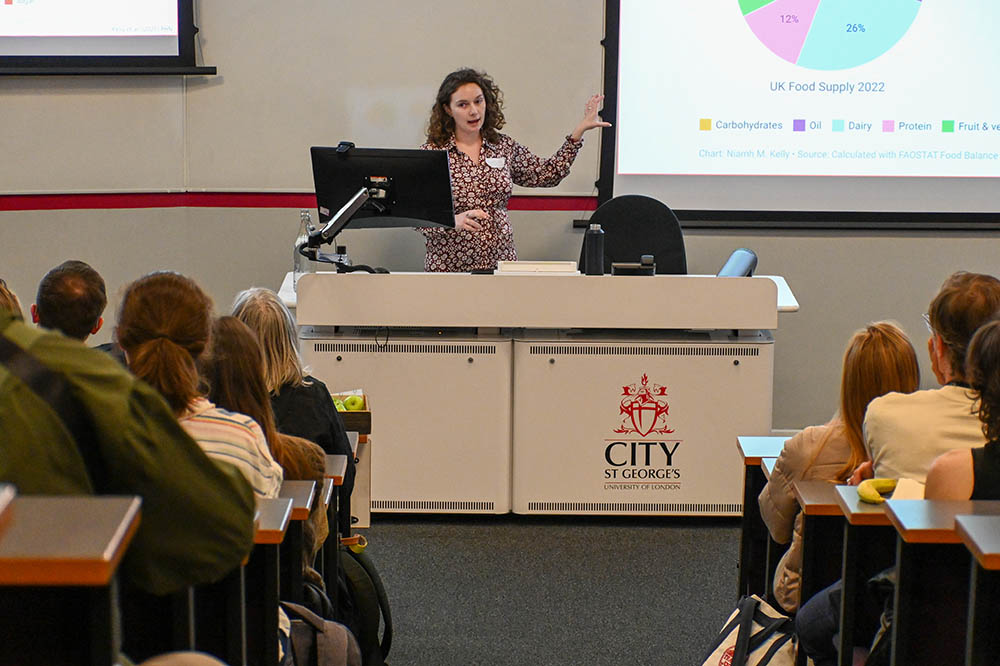
The UK Food Systems Centre for Doctoral Training (UKFS-CDT) annual Research Symposium returned on 7 November, hosted by City St George’s, University of London. The event brought together doctoral researchers, associate partners and external speakers for an enriching day of inspiring discussion, debate, research presentations. This year’s theme – “leadership for food systems transformation” – built on the themes from the programme’s first two symposia related to 'visualising' and 'narrating' food systems transformation and aligned closely with the UKFS-CDT mission "to create the next generation of food systems transformation leaders". Co-designed by PhD researchers from the programme, the event challenged participants to rethink effective leadership for food systems transformation.
Fresh perspectives on leadership in food systems
Rather than revisiting familiar leadership tropes, the programme centred on practical, values-driven models. The opening thematic session, co-created by CDT doctoral researchers – Megan Romania (City St Georges), Cherry Truluck (Aberystwyth University), Kevin Kendall (Aberystwyth University), Andrea Zick (Brunel University) and Rye Hickman (Rothamsted Research) – began with a thought-provoking presentation by Andrea Zick, who explored how leadership is conceptualised both in scholarship and practice.
Andrea unpacked key models, including transformational and systems leadership, as well as conceptual frameworks for integrating systems thinking, innovation and reflective practice to support individual and structural change. Her presentation flowed into a panel discussion featuring guest speakers from across sectors.

Each of the speakers shared diverse perspectives on leadership, drawing on their own experiences to inform the discussion. Alyson Greenhalgh-Ball (Conscious Impact) invited participants to consider leading with awareness, authenticity, and an understanding of personal impact. Simon Crichton (Triodos Bank) highlighted the financial pressures that shape decision-making for farmers, while Adam Bedford (Fera Science) emphasised the importance of values-based leadership when working towards food system change. Ian Smith (Food Plymouth) introduced the ethos of dispersed leadership, drawing from his experience with the Sustainable Food Places partnership. Similarly, Andre Kpodonu (Seeding Reparations) emphasised the importance of recognising and dismantling class inequalities to enable effective leadership that is inclusive of farmers and their knowledge, experience and expertise.

Pivoting from the panel discussion to an interactive session, Robyn Minogue (South West Grain Network) engaged attendees in a participatory reflective exercise to introduce the fascinating and powerful idea of "death and rebirth" as part of transformational leadership. An extended lunch, networking and poster viewing followed, allowing attendees ample time to make in-person connections and reflect on the morning session.
Showcasing doctoral research with real-world relevance
One of the highlights of the symposium was the afternoon research showcase, featuring plenary presentations from doctoral researchers in the final year of the programme. The session, chaired by students, featured five presentations. The students spoke to a diverse array of topics, including decolonising food

production through agroforestry (Gideon Mensah-Commey, UCL), exploring trans food lives (Cole Davidson, UCL), systems approaches to pharmacy practice (Gizem Acar, UCL), interdisciplinary PhD collaborations through community based research (Leah Salm, University of Greenwich), and aligning UK food supply policies with dietary guidelines (Niamh Kelly, City St Georges University). The presentations gave a flavour of the breadth and depth of interdisciplinary research emerging from the CDT and highlighted how these early-career researchers are already exercising leadership through impact-driven research.
Building a community of future leaders
Beyond the sessions, the symposium provided time for the three cohorts of researchers from across the nine consortium partner institutions to connect. For early-career researchers, these networks are vital, creating opportunities for cross-institutional community-building, collaboration, mentorship, and shared learning. The event also provided a unique opportunity for the students to gain valuable experience in the co-design, planning and running of a large event, supported by the UKFS-CDT team.
Looking ahead
Dr Chris Turner, co-manager of the CDT, said: This year’s theme built on the transformative themes from our first two Symposia related to 'visualising' and 'narrating' food systems transformation, and speaks to the wider UKFS-CDT mission "to create the next generation of food systems transformation leaders". A huge thanks to all who were involved, including our hosts, Dr Christian Reynolds and Dr Rebecca Wells at City St Georges Centre for Food Policy, our spectacular speakers and the 55 PhD researchers! We’re already looking forward to the next Symposium in 2026!

